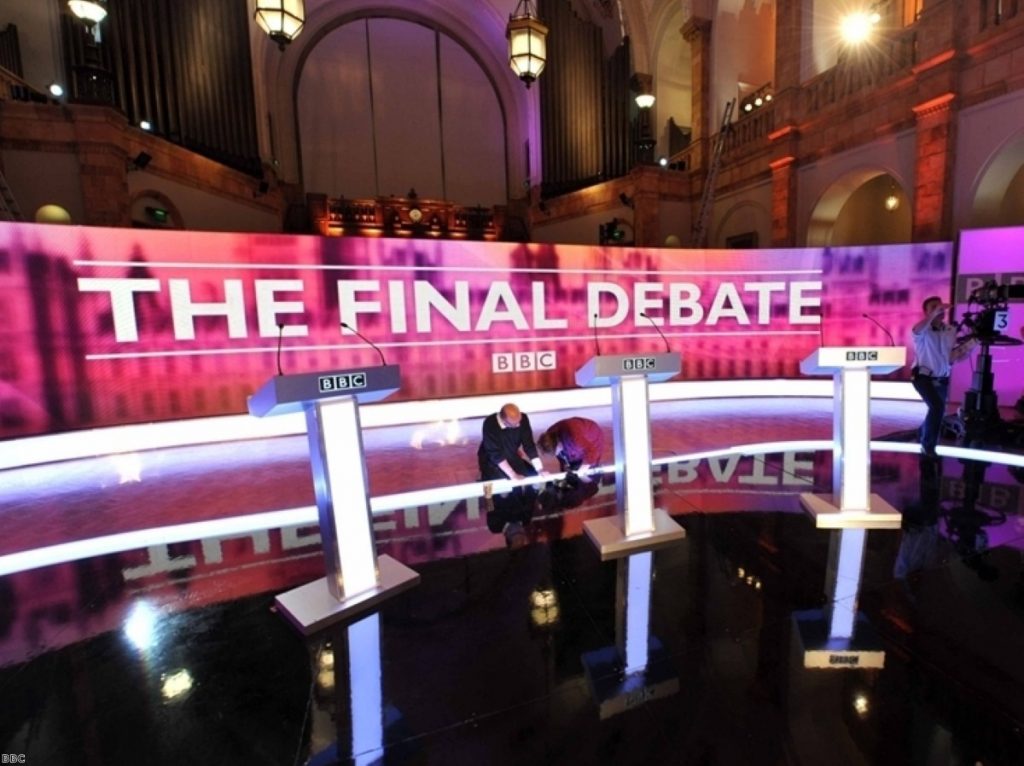Cameron’s fear of TV debates shows how weak his presidential skills really are
Given that the Tories want to run a 'presidential' campaign against Ed Miliband, it's telling that David Cameron is so scared of a TV debate.
Of course, there are many reasons for Cameron to be wary – incumbents almost always are. Gordon Brown only accepted a debate last time because he was losing. For Cameron, the debates present a risk with few advantages. Expectations of Miliband are so low he can't help but impress. The format actually suits the Labour leader. He's at his best when doing Q&As.
Miliband would be far better at the TV debates than people give him credit for. Despite his supposedly vastly superior charisma, Cameron only beats Miliband at PMQs roughly half the time, and that's with his rowdy backbenchers urging him on and Labour in the appalled silence it has sustained in the chamber for the last four years.
More importantly they hand Nigel Farage another opportunity to siphon off Tory votes to Ukip at the business end of the campaign.
So yesterday Cameron said he would not appear in the debates unless the Greens are included, which seems unlikely given the broadcasters aren't interested and Ofcom is supporting them.
Broadcasters missed a trick here. Their three-stage debate format could easily have been changed so the first debate included all parties with an MP, the second any party contesting all seats, or at least a majority of seats, and a final one with the two men who had a chance of becoming prime minister. Taking such an approach would have prevented broadcasters from having to make paternalist decisions on a case-by-case basis about when a party is doing well enough for the public to hear more of them. It also would have robbed Cameron of his excuse for wriggling out the debate.
Broadcasters really are the authors of their own failure here. They should have seen that Cameron would seize on Green party exclusion and they should anyway never have set themselves up as arbiters of small party inclusion, especially during an election defined by the rise of smaller parties. They dropped the ball, badly.
But no matter what the failings of the broadcasters or Cameron's reasons for wanting rid of the event, it is telling that he is so afraid of these debates. Cameron is nowhere near as effective as his team claim him to be. He comes across as arrogant, easily brought to anger and often unable to think quickly on his feet. His record is weak and his political career defined by response rather than agency. He is a political shadow.
This is the event most suited to his qualities. And yet he runs from it, laughably citing his unending concern for the Green party. That tells you a great deal about his political abilities.
He thinks any damage he takes from ducking out the debate is less than the damage he suffers from taking part. Labour and the broadcasters should test that thesis to its limit.
There is a way for Labour to do so. It must agree with Cameron about the Greens, rather than pursue its current strategy of insisting the broadcasters' plans must be followed at all costs. Sure, that means it faces its own threat from its left flank. But if Miliband is running scared of Natalie Bennett, he's of even less ability than we had previously assumed. Labour should accept the Green threat and offer to hold the debates outside the broadcaster's remit if that's what it takes to get Cameron on board.
The leeway he currently enjoys only exists because of Labour cowardice. They should call his bluff.





-01.png)